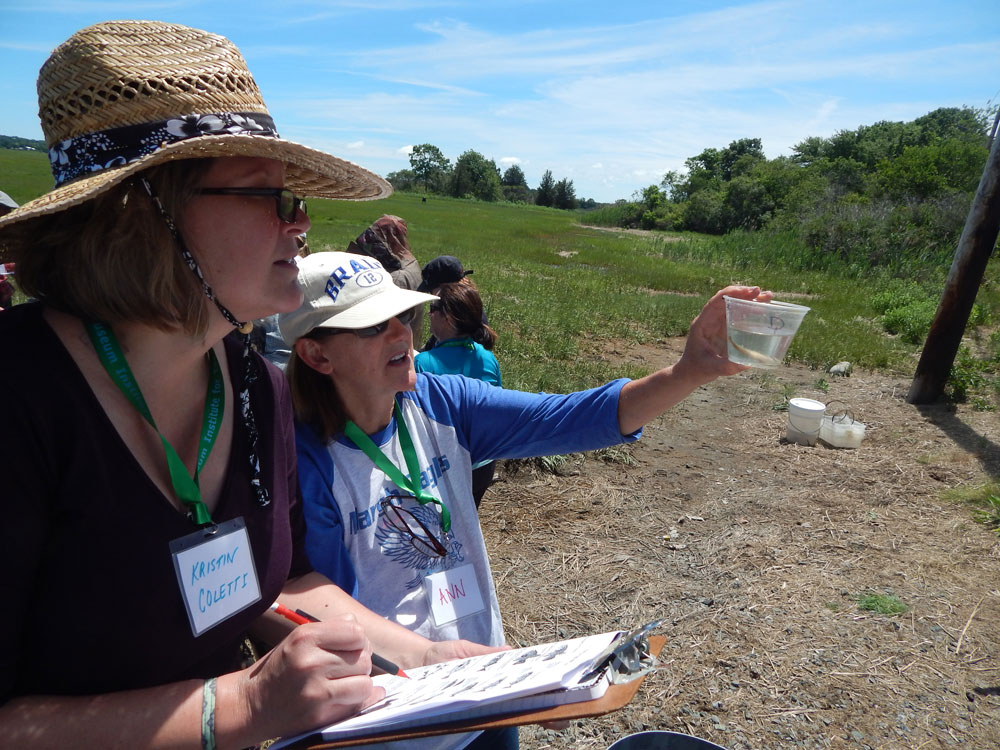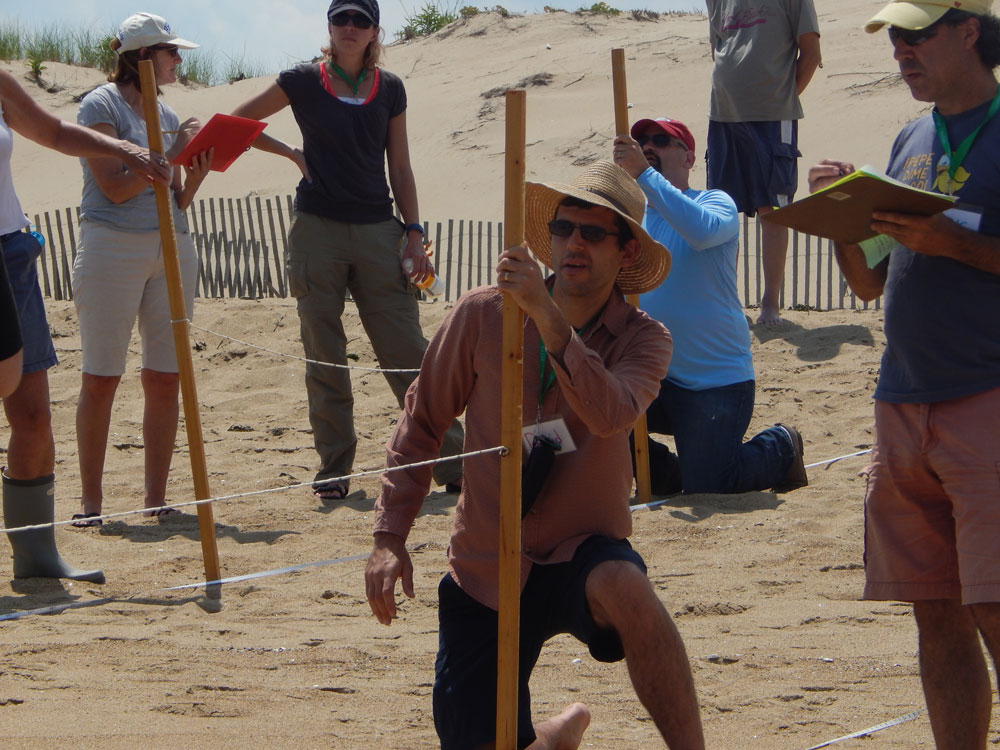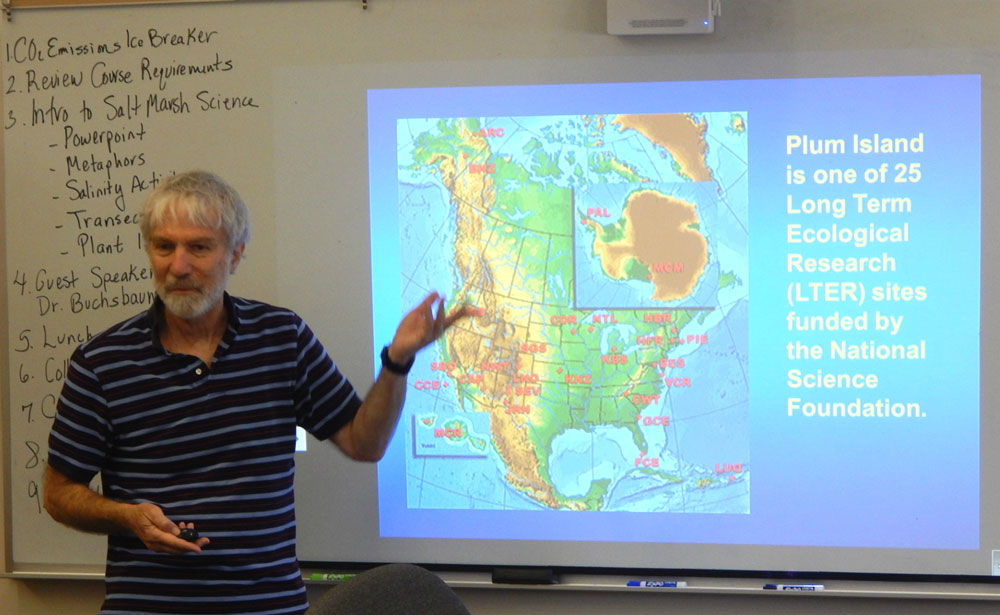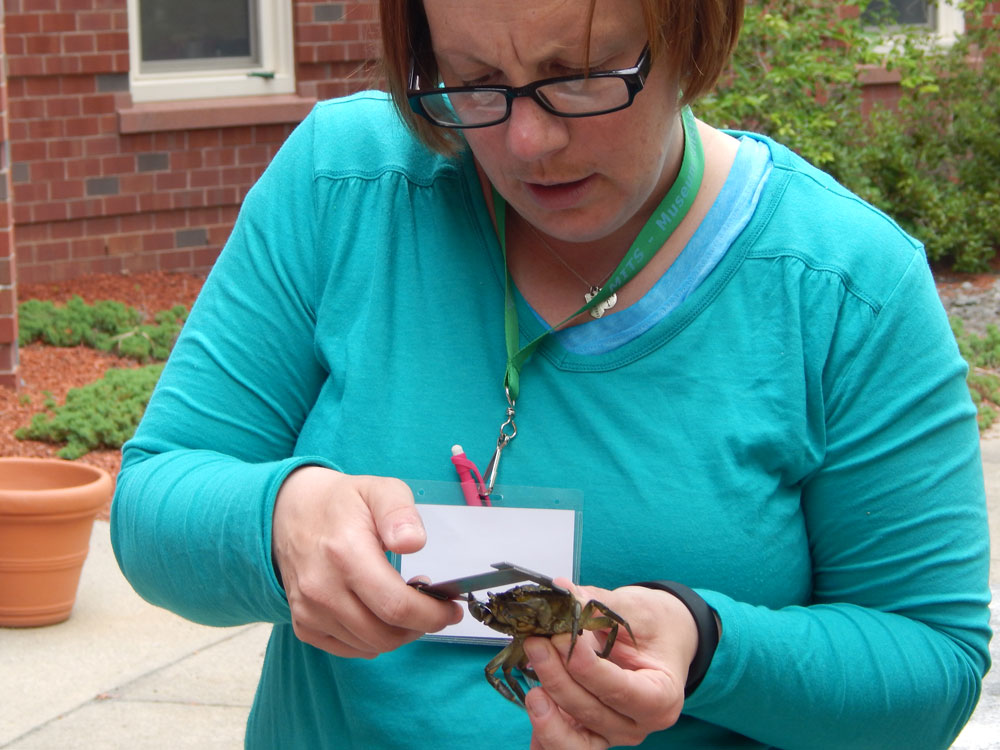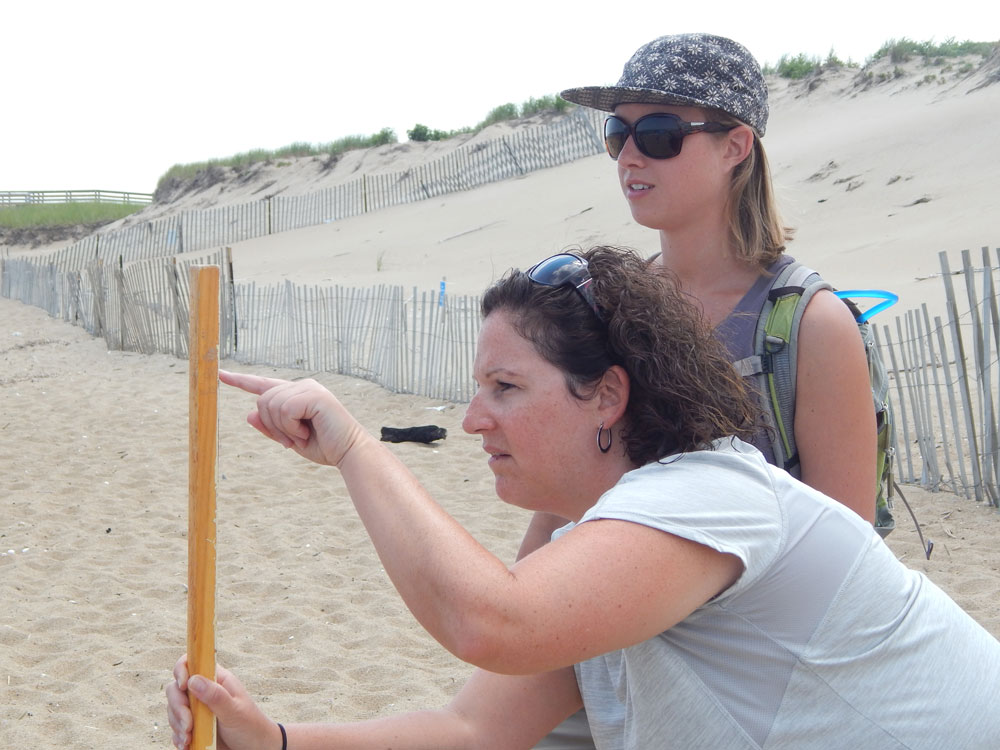Monday, September 19, 2016
For Immediate Release
On the North Shore, Educators Explore Changing Ecosystems with the Museum Institute for Teaching Science
From July 11th to 15th, twenty-seven teachers from twenty-one Massachusetts middle and high schools participated in the Museum Institute for Teaching Science’s North Shore Region 2016 Summer Professional Development Institute, Research and Resiliency: Exploring the Ways Local Ecosystems are Responding to Global Change. This summer institute, held at Ipswich High School,
was a collaborative effort of Mass Audubon’s Endicott Wildlife Sanctuary, Plum Island Ecosystems Long Term Ecological Research (LTER), the US Fish and Wildlife Service, Ipswich River Watershed Association and Boston University. To explore how coastal ecosystems are responding to global change, teachers engaged in primary research and gained firsthand experience in the techniques of field data collection and analysis.
The course was led by Liz Duff, Education Coordinator at Mass Audubon and Lori LaFrance, High School Science Teacher at Ipswich High School. Duff and LaFrance exposed teachers to a range of research topics by collaborating with guest speakers who study ecology and watersheds. Teachers gathered evidence of the continual threats to North Shore coastal ecosystems,
including storms, sea level rise, invasive species, nutrient loading, runoff and tidal restrictions. They explored engineering solutions that could help to minimize the impact of climate change on local habitats and investigated how organisms are responding to changing environmental conditions. The week was filled with field trips, investigations, and discussions that highlighted ways research is supporting human efforts to enhance the resiliency of local ecosystems.
Through hands-on, inquiry-based investigations, participants constructed explanations for changing environments and gathered evidence that
biologically diverse ecosystems tend to have greater resilience. Liz Duff and guest speaker Dr. Robert Buchsbaum, Coastal Ecologist at Mass Audubon, introduced the group to Plum Island Ecosystems LTER and the Salt Marsh Science Project. Teachers then went on a field trip to Parker River National Wildlife Refuge, where they studied impacts of sea level rise on coastal ecosystems.
Susan Adamowicz, Land Management Research Demonstration Coastal Biologist at U.S. Fish and Wildlife Service, showed the group how to examine salt marsh accretion (sediment buildup) and erosion using a sediment elevation table. With guest speaker Alyssa Novak, Research Scientist at Provincetown Center for Coastal Studies, participants learned techniques involved in eelgrass transplanting for salt marsh restoration and how European green crab populations peaks can pose potential threats to this native vegetation. Participants discussed movement of dune sediments on Plum Island with guest speaker, Mike Morris, Chairman of Storm Surge, and learned techniques for measuring beach profiles with Ann Witzig, Science Teacher at Essex Technical High School. With their students, teachers will be able to use these experiences to illustrate relationships between management of natural resources, sustainability, and biodiversity.
Back at the classroom, participants put their minds to salt marsh science data analysis and were introduced to the online Marsh Equilibrium Model by guest speaker Dr. James Morris, Director of the Baruch Institute for Marine & Coastal Sciences and Distinguished Professor of Biological and Marine Sciences at the University of South Carolina. Using interactive maps,
the teachers examined coastal resiliency by analyzing which areas, from the essential infrastructure to the local high school’s new football field, are most vulnerable to sea-level rise.
To wrap up the week, Ipswich River Watershed Association Restoration Program Manager Brian Kelder presented standard ecological and infrastructure risk models that help him assess and prioritize flood-risk and ecological impact sites for stream continuity. Scientists use modeling to construct explanations and design solutions to reduce risk to the watershed’s natural infrastructure and to increase the resiliency of associated ecosystems. For example, solutions to restore water flow include culvert replacement and dam removal. Following the talk, participants toured a dam on the Ipswich River, which allowed them to see for themselves the impact of the river on the local ecosystem.
Scientists study, protect and improve the health of coastal habitats along the North Shore. By working alongside scientists and land managers, teachers gained first-hand, inquiry-based research experiences and perspectives about global change that they can bring back and use in their classrooms. They earned professional development points, with the option of graduate credit, while they witnessed practical field applications
of Science and Technology/Engineering Practices. During the school year, teachers will use resources from the course to engage their students in authentic scientific field research and introduce them to potential career opportunities.
###
The Museum Institute for Teaching Science specializes in providing hands-on, minds-on, inquiry-based STEM professional development for formal and informal educators. For more information, visit www.mits.org or call 617-328-1515.

